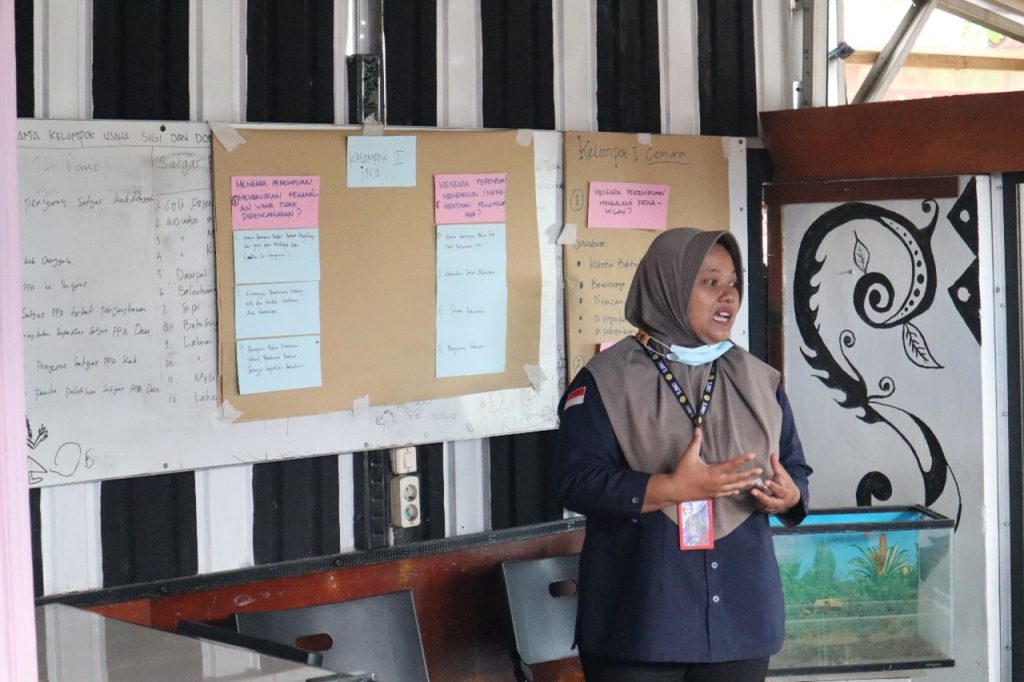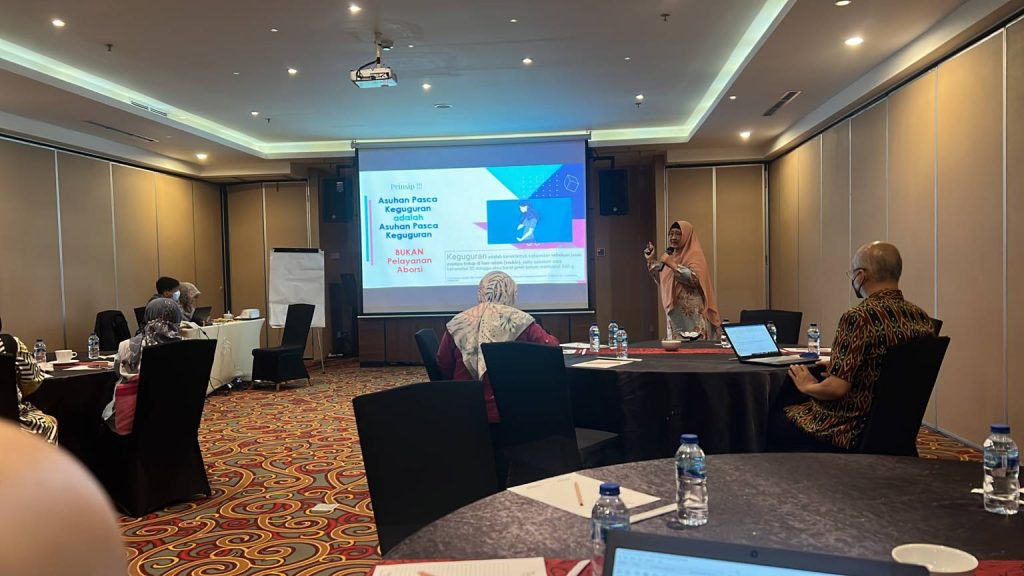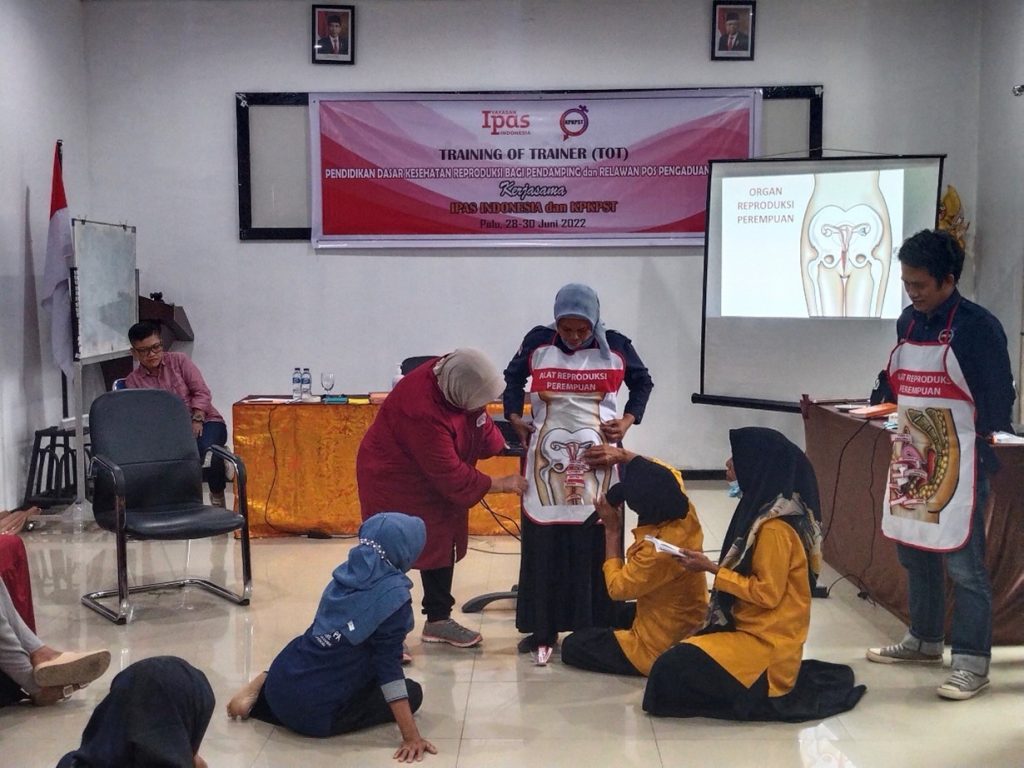IPAS Indonesia Foundation supported the Ministry of Health (Kemenkes) of the Republic of Indonesia to conduct a comprehensive Post Miscarriage Care (APK) training. This training was conducted at RSUD WZ Johannes, Kupang, East Nusa Tenggara (NTT), on August 12-16, 2024.
This activity aims to prepare and strengthen the competence of Human Resources (HR), especially health workers in providing comprehensive APK services as a first step for the implementation of the expansion of comprehensive APK services in First Level Health Facilities (FKTP), especially Puskesmas.
The APK is a series of measures to treat women who have miscarried. APK is crucial to reduce the high maternal mortality rate (MMR) in Indonesia. The 2020 census results show that the maternal mortality ratio is 189 per 100,000 live births. Data from the Ministry of Health’s Health Research and Development Agency in 2012 showed that 4% of maternal deaths were caused by miscarriage.

Particularly in NTT, the geography and uneven distribution of health services are still a challenge in dealing with miscarriage cases. For example, access to referrals from health centers to hospitals is often blocked by flooding during the rainy season. In addition, a number of roads are in poor condition and some bridges have collapsed. These obstacles can jeopardize patient safety.
“[Untuk merujuk], first it costs money, for certain weather conditions, it cannot cross,” said Midwife Saleha Novilla Pattimoa, A.Md.Keb.
In addition, the number of medical personnel in regional hospitals, especially obstetricians, is very limited and the workload is high. Meanwhile, so far, patients with miscarriages are usually referred directly to the hospital from the puskesmas.
“In our district, there is only one hospital, serving around 13 health centers. We handle many cases, every day there are cases of miscarriage. We have two obstetricians,” said Dr. Yustinus M. Ujan, SpOG(K).

From this condition, this training tries to answer the challenge by strengthening the capacity of health workers to expand and bring access to APK closer to women. This training is conducted using the accredited Comprehensive APK curriculum.
Inter-professional collaboration approach
In line with national guidelines, the training in NTT emphasizes an inter-professional collaboration approach involving obstetricians, general practitioners, and midwives. The goal is to form solid cooperation by understanding each other’s roles and authorities in providing APK services.
This collaborative training concept also aims to ensure the fulfillment of the needs for the expansion of APK services up to the first-level facilities in line with the national APK guidelines published in 2020.

From this approach, it is expected that not all miscarriage cases are directly referred to the hospital. However, services can be provided at puskesmas in accordance with the APK guidelines. In the national APK guidelines, FKTPs, especially Puskesmas with difficult access to Advanced Referral Health Facilities/Hospitals or emergency conditions, are authorized to comprehensively handle uncomplicated miscarriage cases with a gestational age of less than 13 weeks.
Therefore, this training is expected to build a solid, trusting and supportive team. Even so, as a supervisor, the obstetrician, has a very important role to ensure the implementation of services by the puskesmas team.
“I think this training is good but for obstetricians the duration is too long. My suggestion is to make a blended combination of offline and online, the theory can be read alone. For beginners like midwives, well that can be five days,” said Dr. Edward Manurung SpOG (K).
Use of WHO recommended medical procedures
Another objective of this training is to introduce the Manual Vacuum Aspiration (AVM) tool in performing APK. AVM is a medical procedure used to remove tissue from the uterus using a vacuum or suction device. The use of AVM is highly recommended by the World Health Organization (WHO) and the World Society of Obstetrics and Gynecology (FIGO) due to its safety.

With the introduction of AVMs, it is hoped that participants will switch from sharp curettage to the use of AVMs. Sharp curettage is a medical procedure to remove the remaining products of conception by scraping the lining of the uterus using an instrument similar to the shape of a sharp spoon.
The use of sharp curettage can increase the risk of complications in the treatment of APK such as, uterine perforation (uterus punctured by surgical instruments) and Asherman Syndrome (scarring in the uterine wall). These complications can make a woman’s ability to have children more difficult and damage the lining of the uterus. The impact of sharp curettage on women who are pregnant again, can cause placental adhesions during labor.
“What I learned from this training is the use of AVMs, because AVMs have been taught in courses but it’s like we are not too familiar with them, and it turns out that sharp curettage has been abandoned,” said Dr. Pujiastuti Wetang.
Data from the Guttmacher Institute (2020) shows that only 67% of hospitals in Java Island have AVM equipment. Of these, only 7% of patients are treated using the APK. In NTT, a number of training participants said that the handling of miscarriage patients still uses sharp curettage.
“We still use sharp curettage, because there is no AVM, 10 years of using sharp curettage,” said Dr. Edward.
So far, there are two ways recommended by WHO and FIGO to treat miscarriage. The first is operative measures using AVM for gestational age below 14 weeks and dilatation and evacuation for pregnancies ≥ 14 weeks. The second is medicamentous action by administering misoprostol according to the dosage in the APK guidelines.
From this training, IPAS Indonesia Foundation provides AVM equipment to hospitals whose health workers are participants. We also encourage the Ministry of Health to facilitate the procurement of these tools because AVM has been included in the Ministry of Health catalog. That way, this APK can be carried out at the Puskesmas and also hospitals.



